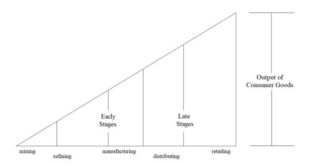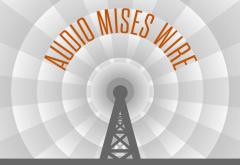History: Regulation of Communications A hundred years of the public interest standard has been applied to radio and television, with the explicit goal of protecting free speech. The very opposite was the case, as John Samples and Paul Matzko have clearly shown. A 1920–30s radio host, Bob Shuler, had exposed the Julian Petroleum Corporation’s defrauding of investors, and subsequently accused the district attorney and city prosecutor of negligence. Shuler also exposed...
Read More »Is Economic Growth Synonymous with Ecological Destruction? The NYT Gets It Wrong (Again)
According to the New York Times (NYT) article July 17, 2022, “The pioneering economist says our obsession with growth must end,” a major threat to our living standard is the obsession with economic growth. Herman Daly—an economist that has been exploring for more than fifty years the relationship between economic growth and individuals’ living standards—is of the view that the pursuit of economic growth causing ecological harm. He developed arguments in favor of a...
Read More »If Mauritius is a Tax H(e)aven, Other African Countries Must be Tax Hells
It is common for commentator to point to corruption, incompetence, malicious Western meddling, and other factors as the source of Africa’s continued economic woes. One seldom hears so-called experts point to taxes as a major impediment to economic development. Even “development economists” do not repudiate Africa’s paradoxically onerous tax regimes. Worse still, powerful (and harmful) neocolonialist institutions, such as the International Monetary Fund (IMF), tend to...
Read More »Thomas Piketty Wants to Bring Back Communism in the Guise of Democratic Socialism
Thomas Piketty’s Brief History is the fourth installment of his assault on economic inequality, following as it does the best-selling Capital in the Twenty-First Century and Capital and Ideology. The third, Time for Socialism: Dispatches from a World on Fire, 2016–2021, is just a collection of popular articles based on which the New York Times dubbed Piketty a “vaguely left-of-center” economist. This slim fourth volume from Harvard University Press calls for...
Read More »Low Interest Rates and High Taxes Won’t Help against Inflation: The Economy Needs Savings and Real Investment
With the Consumer Price Index (CPI) hitting a forty-year high of 9.1 percent, the Bank of England has responded by raising interest rates to 1.25 percent, up by 0.25 from the previous period. This, alongside ex-chancellor and PM hopeful Rishi Sunak planning to “tackle inflation before tax cuts,” signals a poor plan for combating the rising effects of inflation. First, inflation must be defined by its cause rather than its effect for the monetary authorities to enact...
Read More »Economic Causes of War
War is a primitive human institution. From time immemorial, men were eager to fight, to kill, and to rob one another. However, the acknowledgment of this fact does not lead to the conclusion that war is an indispensable form of interpersonal relations and that the endeavors to abolish war are against nature and therefore doomed to failure. We may, for the sake of argument, admit the militarist thesis that man is endowed with an innate instinct to fight and to...
Read More »Germany Can Save Itself, and Possibly the World, by Abandoning Four Failed Policies
The following is a plea to Germany—the war is over and has been for three-quarters of a century. It’s time to stop prostrating yourself for the supposed “good” of Europe. It’s time to take complete control of your domestic and foreign policy, without interference from haughty, busybody world elites, and do what is best for yourself. You will be pleasantly surprised that what is good for yourself is also good for your neighbors and the world. Here are four failed...
Read More »Africa Needs Conventional Fuels, Not Windmills and Solar Panels
The energy and climate goals that Western governments, the United Nations, and other organizations are pushing on Africa constitute a crippling blow to its economies. As the least developed region, Africa should unequivocally prioritize economic development. One would think that amid energy poverty in Africa, Western governments and “development” institutions would prioritize energy security for African countries over energy transition. African countries must have...
Read More »Economies Cannot Produce Wealth without Patience and Long-Term Horizons
People decrying poverty in developing countries usually overlook the fact that there is a dearth of long-term economic thinking. Original Article: “Economies Cannot Produce Wealth without Patience and Long-Term Horizons” In a pioneering study, psychologist Walter Mischel demonstrated that delaying gratification in childhood led to success in later life. The experiment entailed placing toddlers in a room with treats and giving them the option of eating them...
Read More »Why the “New World Order” Is Impossible to Implement without Creating Mass Chaos
The events of the last few years have resurrected a recurring worry among people mindful of their liberty, property, and personal dignity. This worry centers around the prospects of the emergence of the notorious “new world order,” a worldwide totalitarian plot hatched by globalist “elites” intent on destroying the surviving remains of free speech, free enterprise, and free thought. Before asking how justified such worries are, let us note that the “new world order”...
Read More » Swiss Economicblogs.org
Swiss Economicblogs.org










